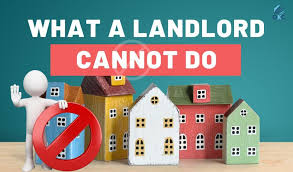Understanding Tenant Privacy Rights: A Comprehensive Guide
In the realm of rental agreements, the rights of tenants hold paramount importance, particularly when it comes to privacy. Tenants have an inherent right to privacy in the property they rent, which is protected under various laws and regulations across jurisdictions. This right ensures that tenants can enjoy their living space without unwarranted intrusions by landlords or other parties.
The principle of tenant privacy is built on respect and legal protections that prevent landlords from entering the rented property without proper notification, except under specific emergency circumstances. This article delves deeply into the tenants’ right to privacy, the legal boundaries landlords must observe, and the consequences of violations, including harassment.
The Right to Privacy for Tenants
The right to privacy for tenants is a fundamental aspect of residential tenancy agreements. Privacy rights protect the tenant’s personal space, belongings, and lifestyle within the confines of their rented home. Landlords must honor these rights to maintain a lawful and respectful relationship with their tenants.
Typically, tenancy laws stipulate that landlords can only enter a tenant’s property:
- With prior written or verbal notice, usually given at least 24 to 48 hours in advance.
- During reasonable hours, often defined by local regulations.
- For legitimate reasons, such as property inspections, repairs, or showings to prospective tenants or buyers.
Any entry without notice, or at unreasonable times, may be considered a violation of privacy and potentially an illegal act depending on jurisdiction.
Exceptions: Emergencies
While the right to privacy is vitally important, certain exceptions allow landlords to enter the property without prior notice. The most prominent exception is in emergencies where immediate action is required to prevent damage, injury, or danger.
Examples of emergencies include:
- Fire or smoke concerns
- Water leaks or flooding
- Gas leaks or dangerous odors
- Situations where the landlord reasonably believes someone inside the property is in danger
In such emergencies, landlord may enter without giving notice to mitigate harm or prevent loss. However, even in emergencies, it is critical that landlords limit entry to the necessary extent and inform the tenant as soon as possible thereafter.
Legal Boundaries and Harassment Considerations
Repeated or unwarranted intrusions by a landlord can be classified as harassment. Harassment infringes upon the tenant's peaceful enjoyment of the rental property and can lead to serious legal consequences for landlords.
Harassment may manifest as:
- Frequent unauthorized entries
- Excessive communication or surveillance
- Intimidation or threats related to tenancy
- Disruption of tenant’s peaceful use of the property
Tenants experiencing harassment have the right to take legal action, which may include:
- Filing complaints with local housing authorities
- Seeking court orders limiting landlord access
- Pursuing damages or penalties under tenancy laws
Understanding these legal protections empowers tenants to assert their rights confidently and maintain a safe and respectful living environment.
Establishing Clear Boundaries: Why It Matters
Boundaries between landlords and tenants are essential for fostering trust and respect. Clear communication regarding entry protocols, maintenance schedules, and notice requirements prevent misunderstandings and potential disputes.
Landlords should always adhere to stipulated notice periods and seek tenant consent when possible. Conversely, tenants should communicate any concerns or needs promptly to facilitate a smooth landlord-tenant relationship.
A well-defined boundary framework supports legal compliance and contributes to the overall harmony in rental living arrangements.
Steps for Tenants Seeking Proper Support
If tenants suspect that their privacy rights are being violated or if they feel harassed, seeking proper assistance is crucial. Effective communication and legal support ensure tenants’ rights are upheld.
Recommended steps include:
- Documenting all instances of unauthorized entry or harassment, including dates, times, and descriptions.
- Reviewing the tenancy agreement and local laws to understand rights and obligations.
- Communicating concerns to the landlord in writing, requesting adherence to privacy rights.
- Contacting tenant advocacy groups, legal advisors, or housing authorities for guidance.
- Seeking professional legal help when necessary to address violations formally.
For those needing personalized support or consultation, reaching out via bio communication channels or sending private messages is recommended. Trusted legal marketplaces such as "Consultant Legal Marketplace" provide reliable assistance in these matters.
Summary of Tenant Privacy and Landlord Obligations
- Tenants have a legally supported right to privacy within their rented premises.
- Landlords must provide proper notice before entering, except in emergencies requiring immediate access.
- Repeated unauthorized entry can constitute harassment, which is subject to legal action.
- Clear communication and boundaries between landlords and tenants help prevent conflicts.
- Tenants are encouraged to seek appropriate help if they experience rights violations.
Respect for tenant privacy rights is fundamental to ethical and lawful rental practices. Landlords and tenants alike benefit from understanding the legal frameworks governing property access and privacy.
By adhering to proper notice requirements and respecting boundaries, landlords maintain trust and avoid potential legal issues. Tenants, empowered with knowledge and resources, can ensure that their right to peaceful and private enjoyment of their homes is protected.
Should tenants require assistance, professional legal services such as those offered by Consultant Legal Marketplace stand ready to provide guidance and support. Protecting privacy rights fosters safer, more respectful rental communities worldwide.
Consultant Legal Marketplace is a premier legal services provider specializing in comprehensive support for tenants and landlords. Our expert team offers guidance on privacy rights, tenancy laws, and conflict resolution. Contact us through bio communication or private message for personalized assistance.































